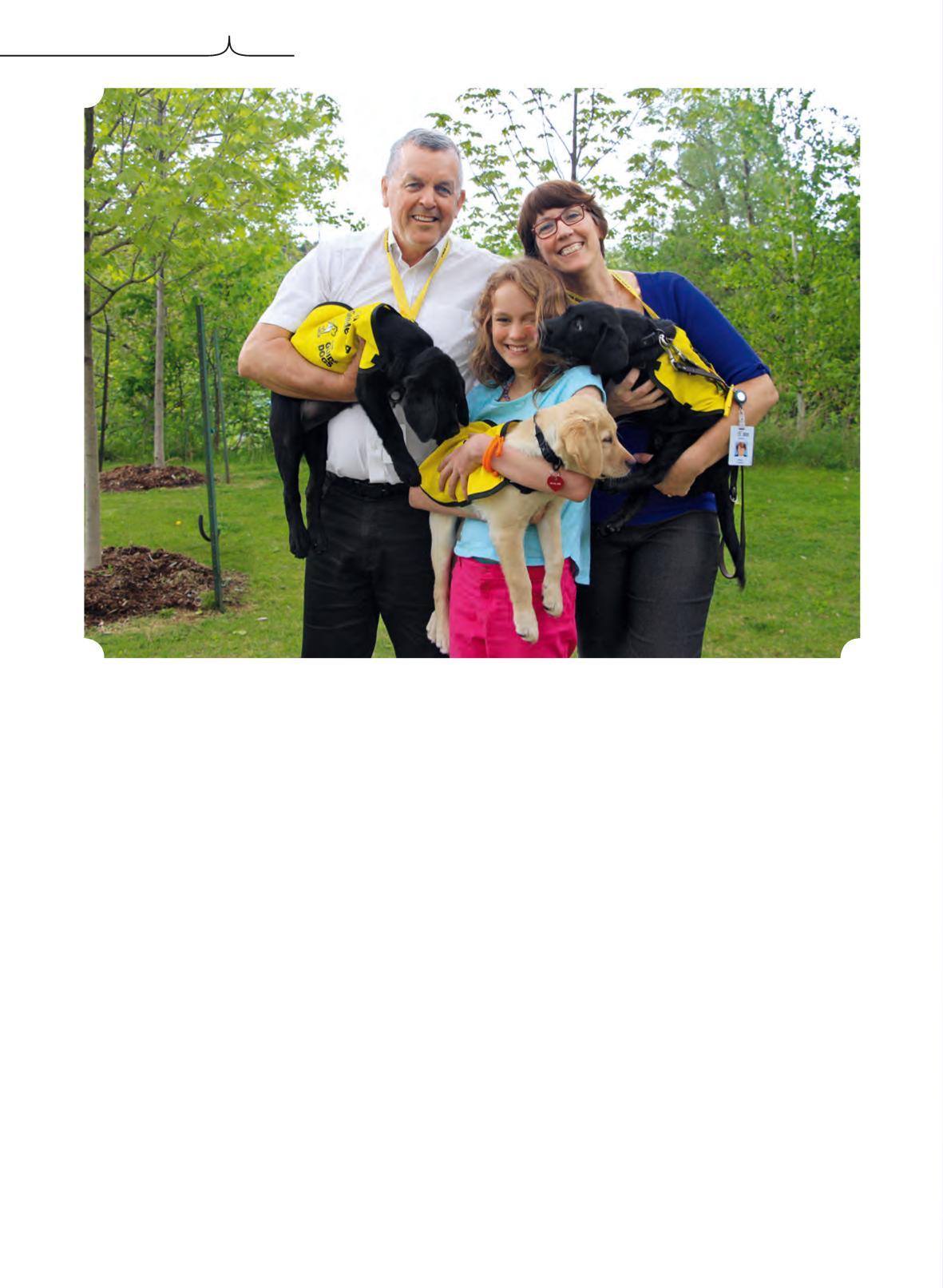LIFE & COMMUNITY serenity now
Gratitude Guilt
This Thanksgiving, give yourself a mental break.
TEXT LIZA FINLAY ILLUSTRATION WENTING LI
THANKSGIVING is a time for, well, giving thanks. It’s no wonder, then, that as October rolls around, gratitude (from the Latin gratus, to be thankful) becomes grist for the mental health mill. And sure, without doubt, gratitude is great. But like any magical elixir, there can be too much of a good thing, and doubling down on giving thanks sometimes leads to an unhealthy emotional hangover: gratitude guilt. This is the name I give to that insidious byproduct of the thanks-giving trend. It sounds like this: “I should be more grateful for [insert favourite brand of guilt here].” “I should stop focusing on the negative and be more grateful for [everything, always].” The Thanksgiving season packs a shouldORDG RI JUDWLWXGH JXLOW ,W¶V D ÀDYRXU RI VHOI loathing that comes from not being grateful enough to meet some mythical bar. It’s also a master manipulator; it not only erodes our VHOI ZRUWK E\ NHHSLQJ XV ¿[DWHG RQ IDLOXUHV and imperfections but also distracts us from the true source of our pain. By telling ourselves that we should be more grateful, we put the brakes on any soul searching that takes us into painful, un-navigated terrain. We deny the intuitive voice that’s trying to tell us something is wrong. For example, instead of staring into the face of your soul-sapping job, you tell yourself to be grateful you have a job when so many are unemployed. Or, rather than lean into the lack of intimacy in your marriage, you remind yourself that lots of your friends are facing divorce. What do I recommend? Stop shoulding on yourself. Sure, be grateful. There’s ample data to support gratitude as a key component of mental health. In fact, a recent meta-analysis RI JUDWLWXGH VWXGLHV UHYHDOHG VLJQL¿FDQW EHQH¿WV LQFOXGLQJ LQFUHDVHG SURVRFLDO EHKDYLRXU (the ability to have and maintain friendships), empathy and forgiveness. Some research suggests that practising gratitude boosts a sense of well-being and decreases depression.
48 OCTOBER 2017 | CANADIAN LIVING
By telling ourselves that we should be more grateful, we put the brakes on any soul searching that takes us into painful, un-navigated terrain. So, by all means, cultivate an appreciation for what’s right in your world, but do it without being wilfully blind to what isn’t quite right. This Thanksgiving, how about taking your dose of gratitude with an equal shot of courage? How about going into the lion’s den to face what scares you? How about giving the little voice you like to ignore a megaphone? This isn’t a zero-sum game; you can value what you have DQG VWLOO DFNQRZOHGJH WKLQJV WKDW UHTXLUH ¿[LQJ You can focus on the positive and still unpack that should-load of baggage you’re carrying around. Then, you can thank yourself. LIZA FINLAY IS A REGISTERED PSYCHOTHERAPIST AND AUTHOR OF LOST & FOUND: THE SPIRITUAL JOURNEY OF WOMEN AT MIDLIFE.
THIS MONTH
TRY THIS MANTRA
I am grateful for what I have, bravely acknowledge what I need and wisely know that the path to enlightenment requires both.








